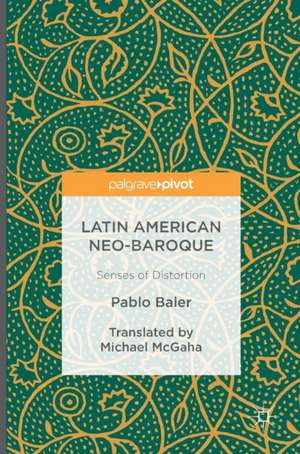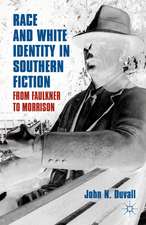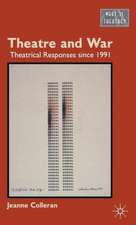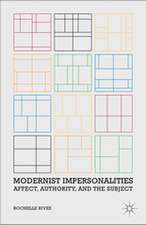Latin American Neo-Baroque: Senses of Distortion
Autor Pablo Baleren Limba Engleză Hardback – 31 iul 2016
Preț: 385.47 lei
Nou
Puncte Express: 578
Preț estimativ în valută:
73.77€ • 76.43$ • 61.57£
73.77€ • 76.43$ • 61.57£
Carte tipărită la comandă
Livrare economică 22 martie-05 aprilie
Preluare comenzi: 021 569.72.76
Specificații
ISBN-13: 9781349949168
ISBN-10: 1349949167
Pagini: 225
Ilustrații: XV, 149 p. 9 illus.
Dimensiuni: 148 x 210 x 11 mm
Greutate: 0.35 kg
Ediția:1st ed. 2016
Editura: Palgrave Macmillan US
Colecția Palgrave Pivot
Locul publicării:New York, United States
ISBN-10: 1349949167
Pagini: 225
Ilustrații: XV, 149 p. 9 illus.
Dimensiuni: 148 x 210 x 11 mm
Greutate: 0.35 kg
Ediția:1st ed. 2016
Editura: Palgrave Macmillan US
Colecția Palgrave Pivot
Locul publicării:New York, United States
Cuprins
Foreward by David William Foster.- Preface.- Introduction: Senses of Distortion.- Metaphor.- Hyperbaton.- Anaphora.- Epilogue: Red Hot Death.- Bibliography.- Index.
Recenzii
“Latin American Neo-Baroque: Senses of Distortion is more than a guide to understanding the Baroque and Neo-Baroque. It is an interdisciplinary text that offers the multifaceted perspectives to which it alludes. The creative and cogent readings of both visual and literary works construct a convincing paradigm. Pablo Baler makes a significant contribution to the study of the Neo- Baroque, and this book should be included in the library holdings as a reference for scholars.” (Dinora Cardoso,Hispania, Vol. 101 (1), March, 2018)
Notă biografică
Pablo Baler is Associate Professor of Latin-American Literature at California State University, Los Angeles, USA and an International Research Fellow at the Centre for Fine Art Research at Birmingham City University, UK. A novelist and cultural critic, Baler is the author of the award-winning novel Circa and the collection of short stories, La burocracia mandarina, as well as the editor of The Next Thing: Art in the Twenty-First Century.
Textul de pe ultima copertă
Pablo Baler studies the ruptures and continuities linking the de-centered dynamics of the 17th century to the logic of instability that permeates 20th century visual and literary production in Latin America. Bringing philosophy, literary interpretation, art criticism, and a poetic approach to the history of ideas, Baler offers a new perspective from which to understand the uncanny phenomenon of baroque distortion. This interdisciplinary inquiry not only leads to a more specific formulation regarding the singularity of the reappropriations of the baroque in Spanish America, but also allows for a more comprehensive assessment of its historical reach in the broader context of the representational crisis of modernity.
Pablo Baler is Associate Professor of Latin-American Literature at California State University, Los Angeles, USA and an International Research Fellow at the Centre for Fine Art Research at Birmingham City University, UK. A novelist and cultural critic, Baler is the author of the award-winning novel Circa and the collection of short stories, La burocracia mandarina, as well as the editor of The Next Thing: Art in the Twenty-First Century.
Pablo Baler is Associate Professor of Latin-American Literature at California State University, Los Angeles, USA and an International Research Fellow at the Centre for Fine Art Research at Birmingham City University, UK. A novelist and cultural critic, Baler is the author of the award-winning novel Circa and the collection of short stories, La burocracia mandarina, as well as the editor of The Next Thing: Art in the Twenty-First Century.
Caracteristici
Provides a new perspective on the impact of the Baroque in Latin American culture by putting baroque literature in conversation with other kinds of art, especially painting Sheds new light on the genealogy of the Baroque by drawing connections between the baroque aesthetic of torsion in the Golden Age and the aesthetics of instability in twentieth-century works Offers a useful guide to late twentieth-century Latin American literature and the development of art in Latin American literature through its explorations of the Baroque.















